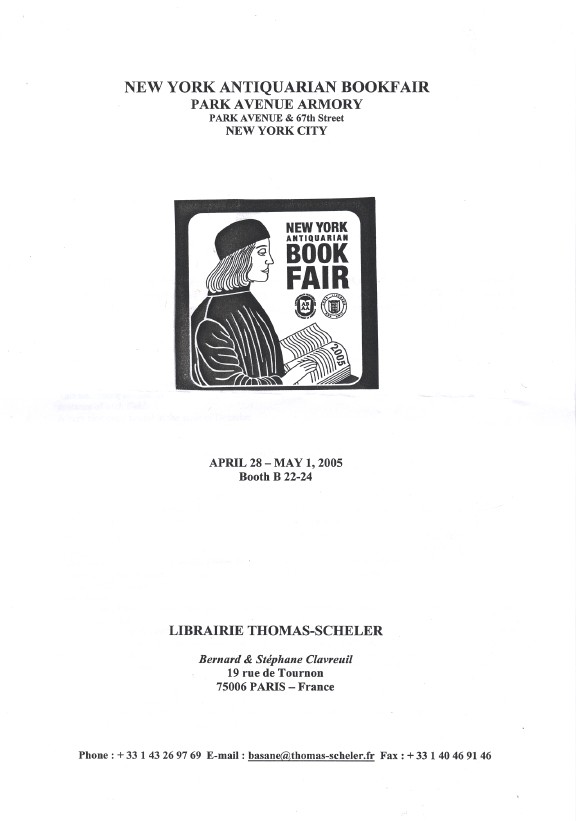Exquisite European Works and European Americana from Librairie Thomas-Scheler

Exquisite European Works and European Americana from Librairie Thomas-Scheler
By Michael Stillman
Librarie Thomas-Scheler printed a brochure of fine works in conjunction with the recent New York Antiquarian Book Fair. Thomas-Scheler is a Paris bookseller with some of the most spectacular offerings on the continent. This may not be the most appropriate material for the amateur, but for those who collect the finest European printings, many going back to the 16th and even 15th centuries, Thomas-Scheler is a major resource. Here are a few of the 46 extraordinary items offered.
Jean-Baptiste Lamarck was one of the earliest evolutionists, although his work was mostly ignored in its day, and discredited in ours. The problem was that he got the precise means of evolution wrong, an error understandable for its time, but one that has left him without the regard he deserves. He should be remembered for recognizing that organisms evolved into different ones at a time when few could accept such a theory. Where Lamarck went wrong was in his belief that acquired traits could be inherited, as opposed to Darwin's natural selection. Lamarck believed that organisms could slowly, and over great periods of time, adjust to changed environments, and would pass these changes down to their young. He also saw this as a part of a process striving for perfection, rather than chance changes being rewarded by better survivability. Lamarck's evolution followed a plan, rather than luck. Considering the knowledge available at the time, roughly half a century before Darwin's famous work, this probably appeared a more likely explanation for the observations so few others even wished to contemplate. Lamarck's theories were best expressed in his 1809 work Philosophie Zoologique.... Item 23. Priced at $22,500.
Tycho Brahe was an astronomer of the late 16th century who represents a transition between the old and new beliefs. In 1572, he had discovered a supernova in the constellation Cassiopeia, and from it came to the then radical conclusion that the heavens are not unchanging. He would be rewarded with a fine observatory by the Danish King Frederick II. Two decades later, he would move on to what is now part of Germany when Frederick's successor declined to provide continued support. However, along the way, he would conclude that the planets revolve directly around the sun, not the earth, as previously believed. However, Tycho only half had it right, as he still believed the sun, and with it the planets, revolved around the earth. It was a step. Item 10 is his Astronomiae instauratae mechanica. This is a 1602 second edition, following the extremely rare limited printing of 1598. $25,000.